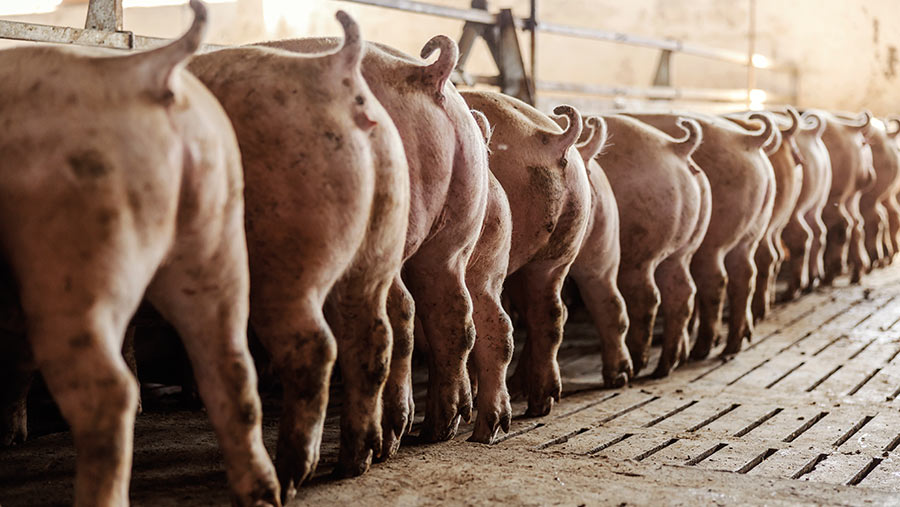Editor’s view: The NFU isn’t being listened to, what next?
 © Dusanpetkovic1/Adobe Stock
© Dusanpetkovic1/Adobe Stock To the NFU’s London outpost in Westminster’s elegant Smith Square this week for another dire warning from its president, Minette Batters, about our nation’s food security.
It would be reasonable to say that each time she has issued a warning about the effects of the Tories and supply chain’s short-termism on food supplies, she has been proved right.
Every survey of the NFU membership shows key food supply sectors, such as poultry, pork and horticulture, in contraction.
See also: Editor’s view: Grab slurry grant funding before its gone
Yet proximity to power and being proved right has yielded precious little additional political currency in this crisis to prod policymakers into action.
Moments after the TV cameras had been switched off at the press conference, more were switched on in Parliament to watch Defra secretary Therese Coffey address the parliamentary committee that scrutinises her department’s work.
She firmly ruled out making any intervention in the marketplace to help either farmers who are not able to extract their cost of production from the marketplace, or consumers with the rising cost of food.
So the NFU finds itself in a difficult position – feeling obligated to keep sounding the alarm, but with little prospect of being listened to.
The reasons for government inaction are clear – it doesn’t have the votes to dilute rules on migration to allow more seasonal workers in.
Keir Starmer’s tough talk on the subject recently has also revealed there is no prospect of a serious attack from the left in support.
As for further financial intervention to subsidise inputs – Mrs Batters’ admission that energy secretary Grant Shapps (in whose gift subsidy for fertiliser manufacturers may be) won’t even meet her is evidence enough of the lack of stomach for extra support there.
If government intervention is ruled out, where does that leave NFU members and others who have either already cut food production or are repeatedly warning that they are planning to do so soon?
They – and the NFU – are caught between the national interest and their own economic self-interest – a difficult place to be.
It is in the public interest to have a plentiful supply of food, both to keep bellies full and prices low for consumers.
It is self-evidently in farming’s interest to not produce food unless farmers are getting paid more than the cost of production to do so.
And food stays cheap in the longer term by being profitable enough to attract the investment that unlocks productivity gains, environmental services and all the other things farmers can provide.
Food inflation for the consumer up until this point can be largely attributed to the unforeseen crises of the Covid-19 pandemic and the Ukraine war.
The longer this goes on, the more it can be regarded as a political choice. If the NFU is deriving no political benefit from being in the room with politicians, a more muscular approach about laying the blame at their door would be welcome.
Where appropriate, this should also extend to naming and shaming bad actors in the supply chain that are taking more than a fair share of profit from the primary producer.
And they shouldn’t shy away from welcoming a few gaps on shelves if that’s what it takes to extract prices that will ensure long-term food security.
This week, it sounded as if the NFU was going through the motions. If pleading and appeals for fairness don’t get listened to, then it’s time for a debate on what will.

